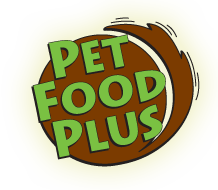Keeping Pets Hydrated: What You Should Know
As pet parents, you always want the best for your pets. You know your pets depend on you to take care of them, including making sure they are well-hydrated. But how can you tell if your pet is getting enough water? What increases the risk of dehydration? And how can nutrition support hydration? Let's take a closer look.
Recognizing the Signs of Hydration
A well-hydrated pet will typically exhibit:
- Bright color eyes
- Moist gums
- A cool, damp nose
- Skin that quickly returns to place when gently pinched (skin elasticity)
On the other hand, signs of dehydration may include:
- Sunken eyes
- Dry or tacky gums
- Lethargy or decreased energy
- Poor skin elasticity
If you observe any of these symptoms, contact your vet promptly.
Factors That Contribute to Dehydration
Certain activities and conditions can accelerate water loss in pets. Here are some common examples:
1) Heat Exposure: Whether sunbathing indoors by a window or spending time outdoors, pets can become overheated. Always provide access to fresh water and shade to help them regulate body temperature.
2) Physical Activity: Vigorous exercise, such as long walks or active play, increases your pet's fluid needs.Be sure to schedule regular water breaks and monitor your pet for signs of fatigue or overheating.
3) Travel and Adventure: Disruptions in routine during travel or outdoor excursions can affect how much water your pet consumes. Carry fresh water and a portable bowl to encourage hydration on the go.
Nutritional Support for Hydration
Diet can also play a key role in maintaining adequate hydration levels.
Wet food contains significantly more moisture than dry kibble, offering both nutrition and hydration in one serving. This is especially beneficial for cats, who naturally have a lower thirst drive and may not drink sufficient water on their own. For dogs, wet food can be a palatable and hydrating addition to their daily meals.
Bone broth is another excellent way to boost hydration. Not only is it flavorful, but it also contains nutrients that support joint, gut, and immune health. It can be served on it's own, poured over food, or frozen into treats.
Goat's milk is rich in natural enzymes and probiotics, making it a gentle, hydrating option that supports digestive and immune health. It's a versatile addition that can benefit both dogs and cats.
Hydration is a critical part of your pet's overall wellness. by monitoring their hydration status, being mindful of activity-related water loss, and incorporating moisture-rich foods and supplements such as wet food, bone broth, and goat's milk, you're taking important steps to support their long-term health.
Visit us in-store, we're always happy to help you find hydration-friendly options your pet will love!
Share this on Twitter | Share this on Facebook | Email to a friend.

